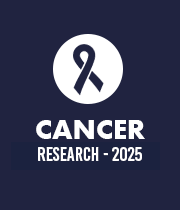Title : Precision medicine and translational research of breast cancer
Abstract:
My topic focus on precision medicine and translational research of breast cancer, including three parts: 1. Homologous recombination repair deficiency in breast cancer; 2. Clinical patterns and predictive models of cancer metastasis; 3. Tumor immunity and the immune microenvironment.
Aimed to study homologous recombination repair deficiency in breast cancer, we found that BRCA1, BRCA2, and ATM were the most frequently mutated HRR genes in the cohorts. Immune infiltration and PD-L1 expression was positively associated with HRR gene and BRCA mutation. And TNBC patients with BRCA mutation have higher HRD score than patients with other non-BRCA HRR gene mutations or the wild-type group. HRD positivity was associated with better prognosis and higher neoadjuvant pCR rate in early TNBC patients.
By analyzing clinical patterns and predictive models of cancer metastasis, we found that bone and brain were the most and least common metastatic organs for all subtypes of IBC. The rate of brain metastasis was highest in HR-/HER2+, followed by TNBC, HR-/HER2+ and lowest in HR+/HER2-. Furthermore, the metastatic rates of all sites in IBC were extraordinarily higher than those of non-IBC, the proportion of visceral metastases increased in the TNBC subtype, especially brain metastasis, which showed the largest increase. IBC was an independent prognostic factor for patients with different metastatic sites.
As for the tumor immunity and the immune microenvironment, the Hippo pathway can promote poor prognosis in TNBC through modulating the tumor immune microenvironment. TAZ mediated the proliferation and migration of TAMs by regulating the IL-34/CSF-1R axis, and inhibited T cell infiltration by upregulating the expression of the immune checkpoint PD-L1. The CSF-1R inhibitor in combination with anti-PD-L1 blockade can be used as a novel therapeutic approach for TNBC. Moreover, CAA-derived CXCL8 promoted TNBC growth and metastasis and modulated the immunosuppressive microenvironment by upregulating CD274 expression and suppressing T-cell infiltration. Targeting CAA-derived CXCL8 could be a novel therapeutic strategy to sensitize TNBC to immunotherapy.


